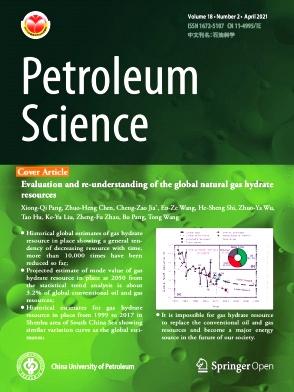Production decline curve analysis of shale oil wells: A case study of Bakken, Eagle Ford and Permian
IF 6
1区 工程技术
Q2 ENERGY & FUELS
引用次数: 0
Abstract
The shale revolution has turned the United States from an oil importer into an oil exporter. The success of shale oil production in the U.S. has inspired many countries, including China, to begin the exploitation and development of shale oil resources. In this study, the production curves of over 30,000 shale oil wells in the Bakken, Eagle Ford (EF), and Permian are systematically analyzed to provide reference and guidance for future shale oil development. To find out the most suitable decline curve models for shale oil wells, fifteen models and a new fitting method are tested on wells with production history over 6 years. Interestingly, all basins show similar results despite of their varieties in geological conditions: stretched exponential production decline (SEPD) + Arps model provides most accurate prediction of estimated ultimate recovery (EUR) for wells with over 2 years' production, while the Arps model can be used before the two years’ switch point. With the EUR calculated by decline curve analysis, we further construct simple regression models for different basins to predict the EUR quickly and early. This work helps us better understand the production of shale oil wells, as well as provide important suggestions for the choices of models for shale oil production prediction.页岩油井产量下降曲线分析:巴肯、鹰滩和二叠纪案例研究
页岩革命使美国从石油进口国变成了石油出口国。美国页岩油生产的成功激励了包括中国在内的许多国家开始开采和开发页岩油资源。本研究系统分析了巴肯(Bakken)、老鹰福特(EF)和二叠纪(Permian)3 万多口页岩油井的产量曲线,为未来页岩油开发提供参考和指导。为了找出最适合页岩油井的递减曲线模型,对生产历史超过 6 年的油井测试了 15 个模型和一种新的拟合方法。有趣的是,尽管地质条件各不相同,但所有盆地都显示出相似的结果:拉伸指数产量递减(SEPD)+ Arps 模型能最准确地预测生产超过两年的油井的估计最终采收率(EUR),而 Arps 模型可在两年转换点之前使用。利用递减曲线分析计算出的最终采收率,我们进一步构建了不同盆地的简单回归模型,以快速、尽早地预测最终采收率。这项工作有助于我们更好地理解页岩油井的产量,并为页岩油产量预测模型的选择提供重要建议。
本文章由计算机程序翻译,如有差异,请以英文原文为准。
求助全文
约1分钟内获得全文
求助全文
来源期刊

Petroleum Science
地学-地球化学与地球物理
CiteScore
7.70
自引率
16.10%
发文量
311
审稿时长
63 days
期刊介绍:
Petroleum Science is the only English journal in China on petroleum science and technology that is intended for professionals engaged in petroleum science research and technical applications all over the world, as well as the managerial personnel of oil companies. It covers petroleum geology, petroleum geophysics, petroleum engineering, petrochemistry & chemical engineering, petroleum mechanics, and economic management. It aims to introduce the latest results in oil industry research in China, promote cooperation in petroleum science research between China and the rest of the world, and build a bridge for scientific communication between China and the world.
 求助内容:
求助内容: 应助结果提醒方式:
应助结果提醒方式:


